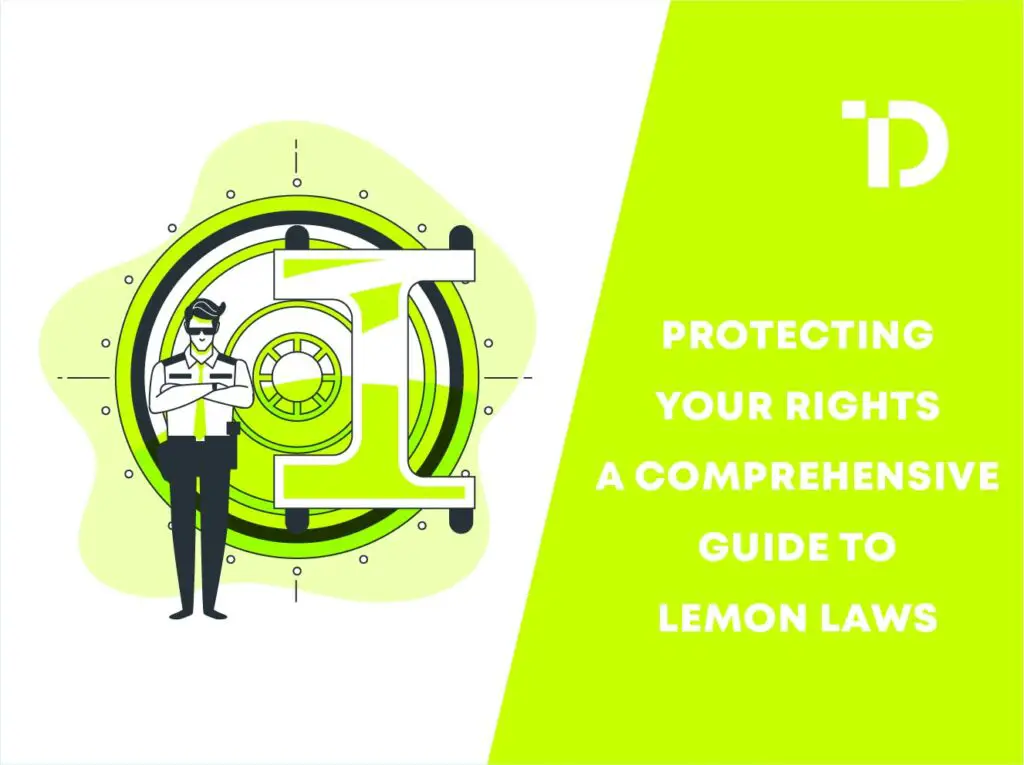Discovering a defective new vehicle can lead to immense frustration and financial burden. Nonetheless, a beacon of hope exists for affected consumers in Lemon Laws. These statutes are designed to uphold consumer rights, offering redress when vehicles do not meet quality or performance standards. Becoming acquainted with these laws is essential, especially given the intricate nature of automotive defects and the nuanced legal recourse available. For those in the Peach State, consulting knowledgeable lemon law attorneys in Georgia is a prudent first step in understanding and asserting one’s consumer rights.
What Are Lemon Laws?
Lemon Laws encompass statutes granting consumers the authority to pursue remedies when they acquire vehicles or other products that do not meet established quality and performance standards. While these laws vary significantly across states, they all aim to shield consumers from the challenges associated with owning a defective vehicle, commonly referred to as a ‘lemon.’ A ‘lemon’ vehicle is defined as one that continues to exhibit significant defects that impact its functionality, safety, or worth despite reasonable efforts to address them. For individuals seeking legal representation in Georgia, consulting lemon law attorneys in Georgia can offer valuable assistance and guidance. Understanding these laws is critical, as they outline the responsibilities of manufacturers and dealerships towards the consumer and provide a legal framework for pursuing a claim.
How Lemon Laws Benefit Consumers
As a robust safeguard, Lemon Laws ensure that consumers are never left in the lurch due to persistent vehicular defects. These laws enforce accountability on the part of manufacturers, requiring that they render a solution – which often means vehicle replacement or refund. This layer of consumer protection fortifies the trust between buyers and the automotive industry. Furthermore, these laws deter manufacturers from releasing substandard products, promoting higher-quality vehicles across the market.
The Lemon Law Claim Process
Navigating the lemon law claim process can be daunting, but it’s a structured course of action designed to determine the legitimacy of a claim. Initially, the vehicle owner must report the issues to the manufacturer or dealership, initiating an opportunity to rectify the defect. If repairs do not resolve the problem, diligent record-keeping of all attempts at repair, communications, and any other relevant interactions regarding the vehicle becomes pivotal. This documentation forms the cornerstone of any lemon law claim and can significantly impact the case’s success. The ability to demonstrate the defect, the number of repair attempts, and the length of time the vehicle was rendered unusable are determinants the law considers when defining a vehicle as a ‘lemon.’
Critical Factors in Lemon Law Cases
Prominently, in lemon law, claims include the gravity of the defect, the length of time over which the owner has dealt with the problem, the number of repair attempts, and the total period the vehicle has been out of service for repairs. Specific criteria such as a certain number of repair attempts within a particular period or a clear description of the defect’s impact on the use or safety of the vehicle help distinguish a lemon from a car with minor, fixable issues. Lemon Law eligibility and the potential consequences for car manufacturers ultimately hinge upon these factors.
State-Specific Considerations
There is a rich tapestry of variation among Lemon Laws in different states, accentuated by the unique definitions and guidelines that each state puts forth. These specificities shape the landscape of how claims are made and resolved. For example, the number of repair attempts considered reasonable before a car can be officially deemed a lemon, the time frame in which a vehicle owner can submit a claim, and the types of vehicles covered can differ. Bearing this in mind, a local advocate well-versed in your region’s laws, like a lemon law attorney, can offer invaluable aid in navigating these complexities.
The Role of Attorneys in Lemon Law Claims
Amidst the legal intricacies of Lemon Law claims, the guidance of an attorney seasoned in this field can make a monumental difference. These legal experts provide advice tailored to the unique aspects of your state’s regulations, aid in compiling a compelling documentation suite to support your claim and represent your interests if your claim proceeds to litigation. While some may be apprehensive to seek legal counsel, an investment could distinguish between a dismissed claim and a successful resolution.
Consumer Stories: Lemon Law Successes and Challenges
Drawn from the lived experiences of consumers, numerous stories highlight individuals who have triumphed in their lemon law disputes, often backed by skillful legal representation. These narratives encapsulate their challenges and victories and underscore the significance of consumer vigilance and empowerment. Stories of success also serve as instructive examples, providing insights and strategies that can inform and guide others in similar circumstances.
Avoiding Lemon Vehicles: Tips for Consumers
The maxim ‘prevention is better than cure’ holds especially true when avoiding lemon vehicles. Savvy consumers are advised to verify the history of their prospective purchases thoroughly, meticulously inspect warranty offerings, and heed any cautionary signs that may signal underlying issues. Additionally, authoritative sources such as Consumer Reports offer rich insights and advice on the nuances of Lemon Laws, vehicle reliability ratings, and the stakes of automotive recalls. Likewise, news outlets like NBC News deliver context and commentary on the importance of these consumer protections in an era marked by frequent vehicle recalls. Embracing the information available equips consumers with the tools to make well-informed decisions, reducing the likelihood of a sour experience with a lemon vehicle.
